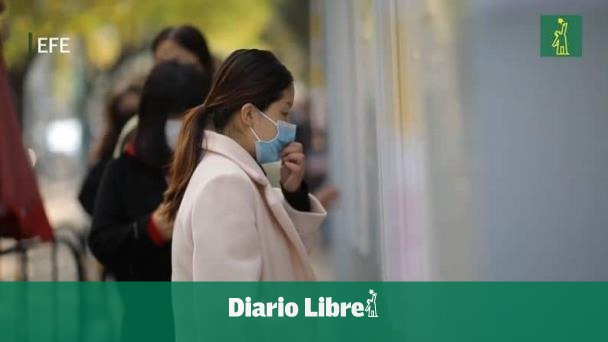Faced with uncertainty and even a wave of unusual protests, China decided that the ballast for the social stability and the national accounts of thezero covid‘ is excessive and has started a process of reopening amid doubts about how the economy will react to a “return to normal”.
In March, Beijing had marked a growth target of around 5.5% by 2022 – one of the lowest in decades.
But ambitious given the situation-, but lockdowns such as Shanghai in spring they caused the national economy to contract by 2.6% in the second quarter compared to the previous one.
The forecasts of international institutions are not particularly positive now: the International Monetary Fund anticipates that China grow 3.2% globally in 2022, while the World Bank puts the figure at 2.8%.
According to Alicia García-Herrero, Natixis Chief Economist For Asia-Pacific, the mobility restrictions imposed under the ‘zero covid’ framework could have caused Chinese GDP to stop growing by up to 2.5 percentage points this year.
Objective: revive demand
Beijing’s redoubled commitment to the ‘zero covid‘ In 2022 it took consumption ahead, as the official retail sales statistics show: after starting the year strong with a 6.7% rebound in the first two months.
Furthermore, the arrival of omicron and those mentioned lockdowns they sank the indicator, which in April fell by 11.1% year-on-year.
After a summer of some calm and recovery, the autumn wave of infections, which beat the records in china since the beginning of the pandemic, translated into a new drop in retail sales in October, of 0.5%, once again demonstrating the pernicious effect of restrictions and confinements on consumer sentiment.
The drop in demand at the national level has also opened a wound in the official foreign trade datawhich in November reflected a 10.6% year-on-year drop in imports denominated in dollars, the largest in the last 30 months.
abandoning the ‘zero covid‘, China would boost demand “in the medium term”, explain Julian Evans-Pritchard and Zichun Huang, analysts at the consultancy Capital Economics, who, however, warn that the transition to a strategy of coexistence with the virus similar to that adopted in other countries “It will probably take time.”
Likewise, another factor that could hinder the reactivation of consumption is the fear that part of the population China has developed due to the possibility of becoming infected after almost three years in which the official propaganda He has warned time and again of the dangers of the virus to justify his decision to maintain the ‘zero covid’.
“Even if the restrictions to mobility before Chinese New Year (main festive time of the year in the country, which in 2023 will be held at the end of January), many consumers they could avoid crowded areas”, they point out from ING, which rules out a “significant increase” in consumption in the first quarter of the coming year.
Added to this are the prospects for a recession global levelwhich will further weigh down exports, which in November had fallen at their fastest rate since the start of the pandemic (-8.7%) due to the drop in the foreign demandaffected by factors such as high inflation or aggressive rises in interest rates.
Economic recovery, priority for the party
The Politburo, the dome of the Chinese Communist Party (CCP), this week pointed to a “general improvement” of the economy in 2023 in which it will focus on “stabilizing growth, employment and prices”, as well as “preventing and defusing important risks effectively “.
The organization also wanted to guarantee the continuity of its fiscal policy “proactive” and its “prudent” monetary policy, also qualifying the latter as “precise” and “forceful”.
zhang ziweian analyst at Pinpoint Asset Management quoted by the Hong Kong daily South China Morning Post, highlighted some “positive messages” from the Politburo such as the promise to “boost market confidence vigorously”, which, in his opinion, anticipates “kinder” policies towards market players in 2023.
Both the yuan and the chinese bags They have rebounded strongly in the face of successive announcements of the withdrawal of restrictions by the authorities.
For the consultant trivium chinathe key message of the Politburo statement is precisely the absence of mention of ‘zero covid’: “It indicates that the Party’s priority is no longer controlling the pandemic but economic recovery.”
He said that: “The way in which the authorities guide China through the first great wave of covid in this new era will determine how quickly Beijing will be able to revive the economy.”
“Insufficient levels of vaccination and inadequate health resources mean that China has embarked on a chaotic exit from ‘zero covid’ that will seriously overload public health and the economy. We expect things to get a lot worse before they start to get better,” she adds.
And it is that the end of the ‘zero covid’ does not guarantee that 2023 will be a bed of roses for China due to other factors such as the real estate crisis or the commercial and technological war with the US, as pointed out by Arup Raha, from Oxford Economicswho forecasts a GDP rebound of 4.2% next year.
But he warns that: “Even without covid, the housing bubble it is slowly deflating and political tensions are rising. The recovery will be slow, and the region (Asia) will feel the pain.”















